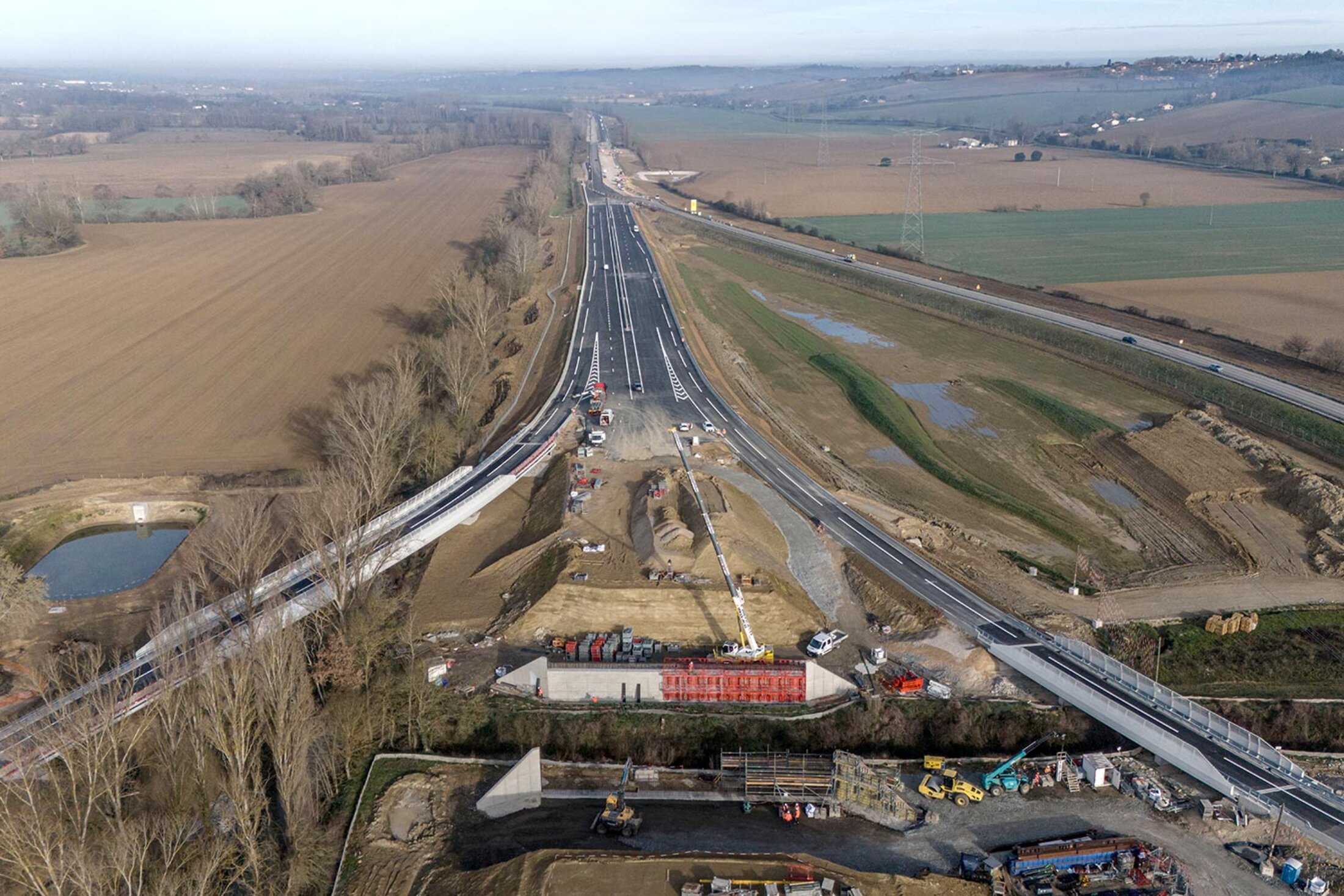An historic decision and a resounding failure, both on the same day. By overturning authorisation for the A69 motorway in south-west France on February 27th, the Toulouse administrative court delivered a double blow: it is the first time that the judiciary has cancelled a motorway project on environmental grounds and the first time it has halted construction on a project of such scale.
The flood of reactions - ranging from passionate and euphoric to outraged - underlines the significance of this moment in the long history of controversial infrastructure projects in France. The ruling by presiding judge Marie-Odile Meunier-Garnier and her colleagues methodically and persuasively demonstrates that simply wanting a motorway does not make it a project of public interest.
The Toulouse-Castres project, which would cut through farmland, protected natural areas and forests, threatens 162 species of plants and animals. Its route and scale - 54 kilometres (33.5 miles) of dual carriageway - are so damaging to ecosystems that the state had been forced to invoke “critical reasons of major public interest” to justify its approval in 2023.

Enlargement : Illustration 1

This is precisely the argument that the court has dismantled. Road safety, connectivity, economic development and job creation, improved quality of life for residents along the current national road; none of the justifications put forward by the state align with the reality of this region in south-west France.
A pragmatic assessment
The Toulouse court took the time to weigh up the pros and cons, to check the business and employment figures, calculate the actual time savings for motorists, assess the number of heavy goods vehicles likely to use the route, and consider the knock-on effects of building a major highway. Its conclusion: the combined economic and social benefits expected from the A69 do not amount to an “interest of such significance that it could outweigh the objective of conserving natural habitats, wildlife and plant species”, the judges wrote.
Their reasoning echoes the warnings issued by more than 1,500 scientists in October 2023, as well as the concerns of climate expert Valérie Masson-Delmotte, who told Mediapart: “The A69 motorway is emblematic of an outdated decision-making model, one that fails to build the resilience and decarbonised future we need.”
Faced with the Toulouse court’s bold exercise in pragmatism and legal logic, how did the French state respond? It shut its eyes, covered its ears, and decided to press ahead with its project unchanged. Not only is it appealing against the court’s ruling, it is also requesting a “stay of execution”. In other words, it wants the court’s decision to be suspended so that construction can continue.
“The state reaffirms its commitment to delivering this infrastructure,” read a joint statement from the minister for regional planning, François Rebsamen, and transport minister Philippe Tabarot. Tabarot went even further, declaring that the “situation resulting from the Toulouse administrative court's ruling is absurd”.
And for what reasons does it reaffirm this commitment? “The needs of the local economy”, “shorter and safer journey times”, “improvements in road safety” and “reduced nuisance for residents”, say the ministers. These are precisely the arguments that the court has just exposed as futile - if not downright misleading.
This response from the government is deeply disappointing, though scarcely surprising given its complete indifference to environmental issues. For not only does it show blatant disregard for the judiciary’s work, it also lends weight to the fake news peddled by supporters of the A69 project.
This is where the state’s resounding failure lies: in denial of the technical realities of the case, in denial of the climate crisis and the need to protect ecosystems, and in denial of our vulnerability to the effects of climate change; part of the A69 route runs through flood-prone areas. Above all, the state's failure lies in a refusal to acknowledge its mistakes. Yet respecting planetary limits – on water, biodiversity, CO2, pollution - is not some optional extra. The more roads continue to destroy forests and wetlands, the more vulnerable our societies will become to climate risks.
This is the other lesson of the Toulouse ruling: public interest can no longer ignore ecology. Protecting ecosystems and living environments is no longer optional, it is essential. We must accept that industrial interests (construction, transport, pharmaceuticals, and others) must now be weighed against the urgent need to prevent ecocide. To ignore this profound shift in societal values is to condemn ourselves to a double failure: environmental and democratic.
-----------------------------------------------------------------------------------
- The original French version of this op-ed article can be found here.
English version by Michael Streeter


